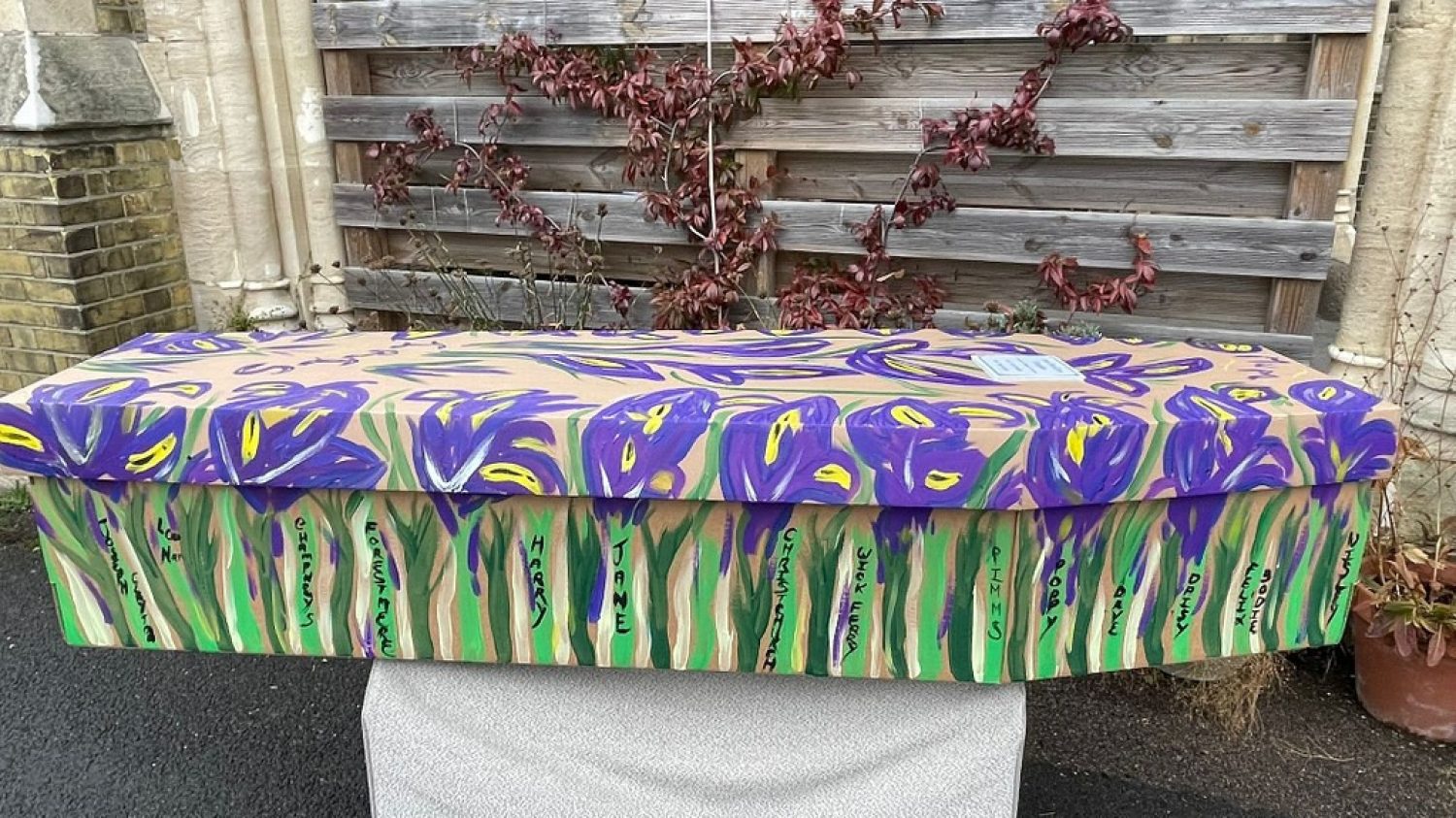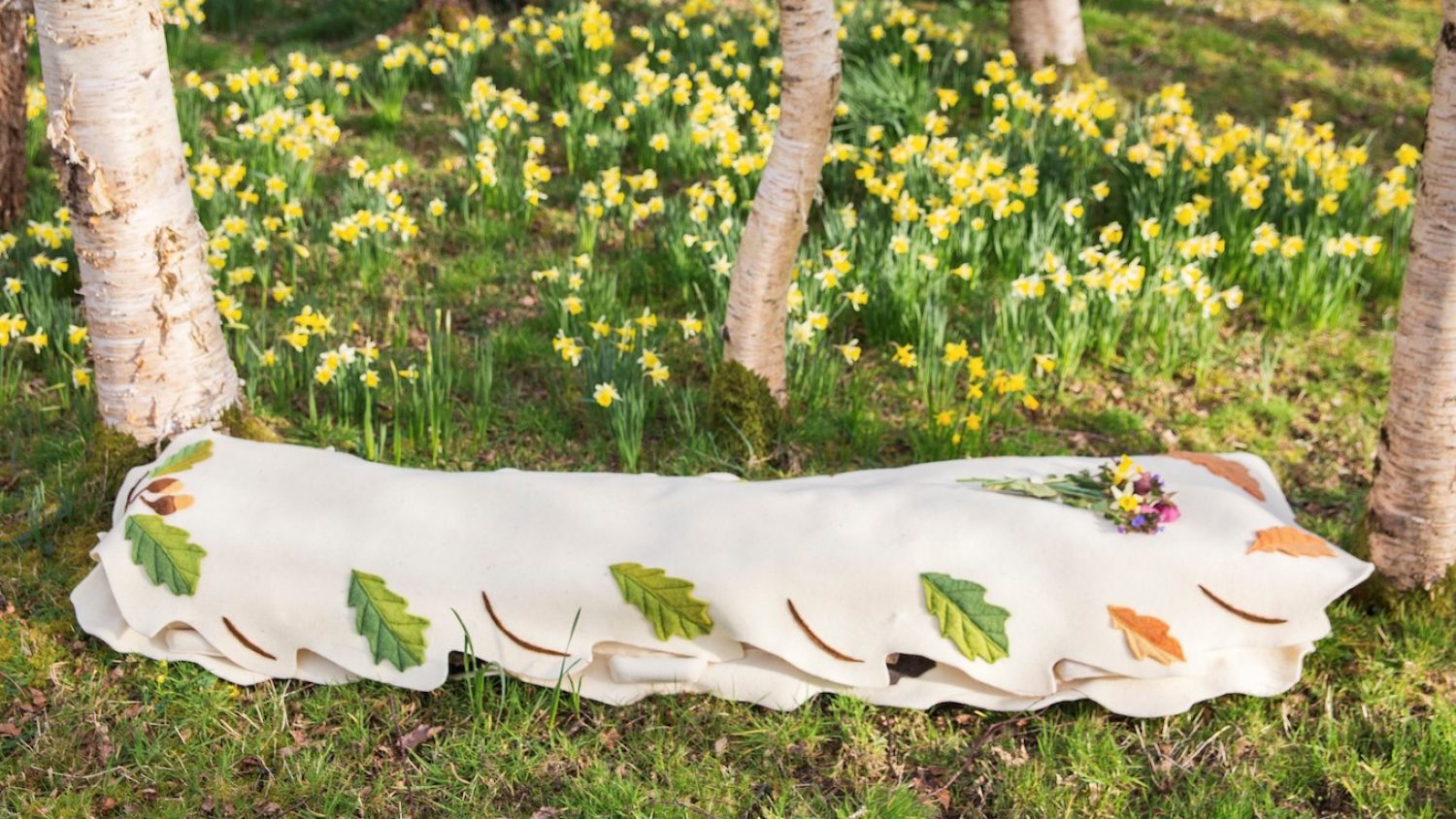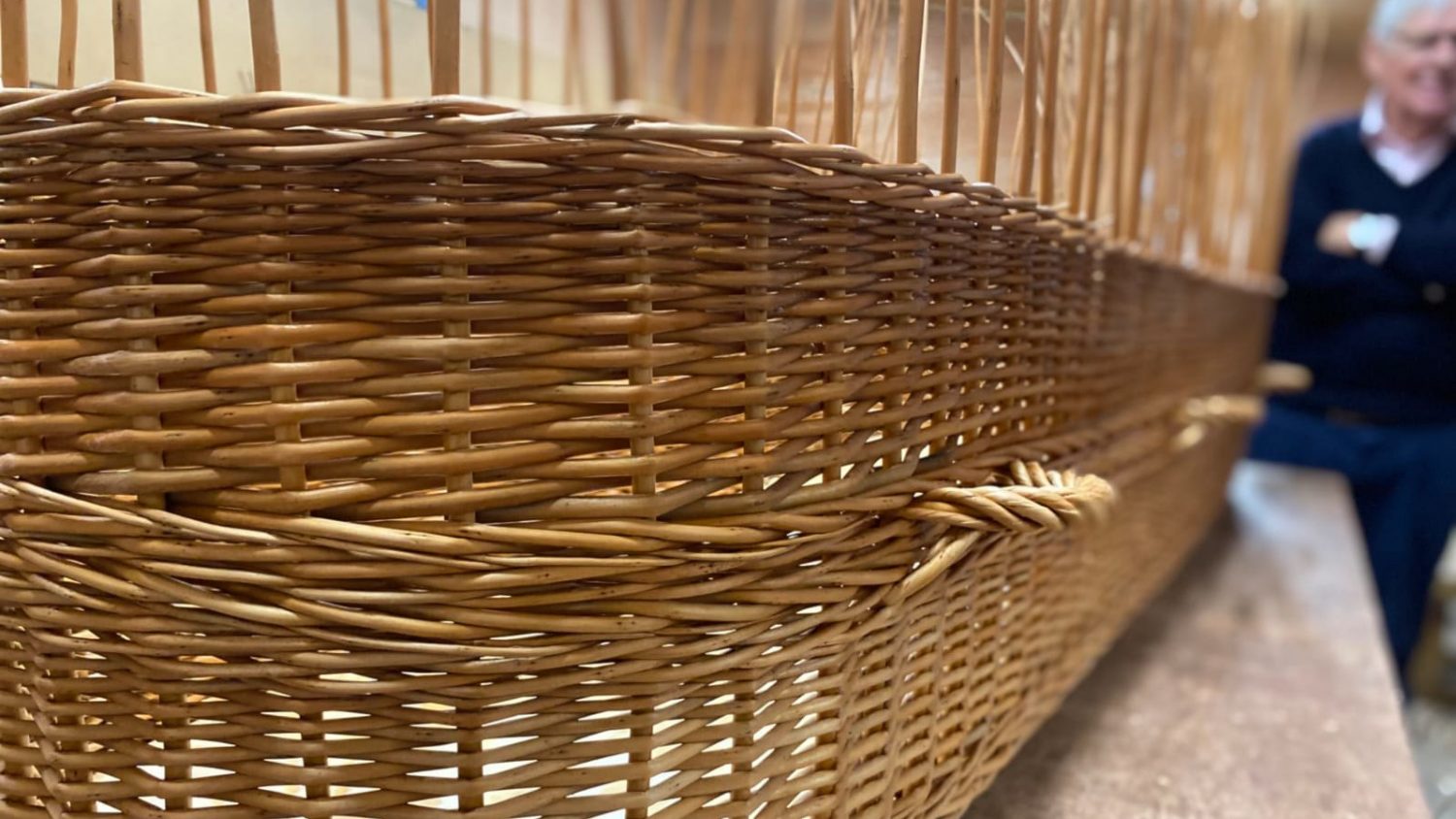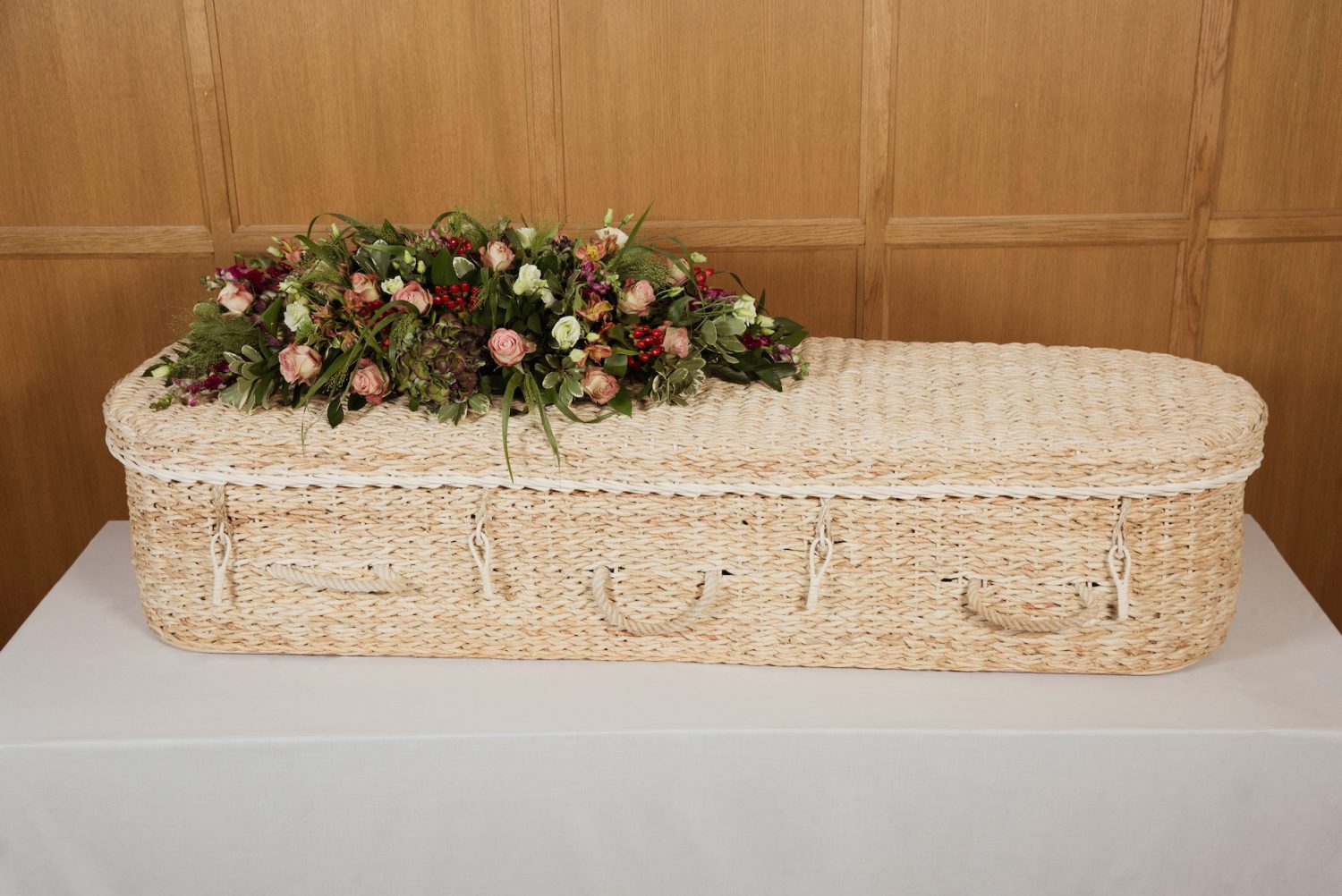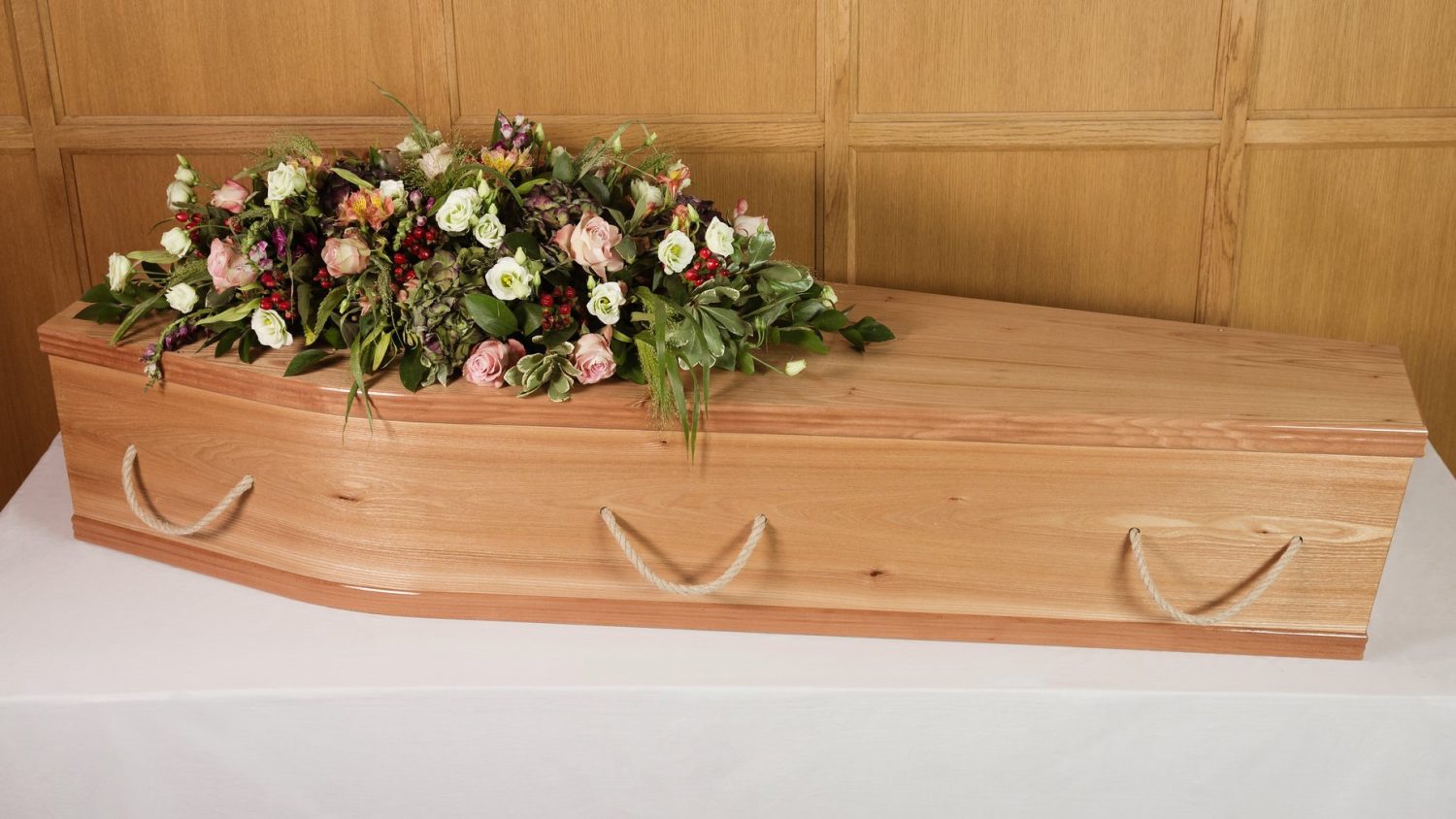Four minute read
If you want an eco-friendly funeral, there are many green choices that you can make to reduce your impact on the environment. For example, you could opt for an electric-powered hearse, find a natural burial site or source local flowers instead of imported blooms.
Your choice of coffin also makes a difference to your carbon footprint and, right now, there are many different options available.
One of the questions we are often asked is: ‘which type of coffin is the most eco-friendly?’ But there is no single, straightforward answer.
The truth is that little research has been done so far into which type of coffin has the least environmental impact. There are also many different factors at play — from the materials used to the distance transported — so it is hard to compare like with like.
However, we are gathering as much information as we can about how every coffin in our catalogue is made. This is not to tell you what to decide, but to help you make the decision that’s right for you. We are here to guide you through. View our catalogue.
Whether or not a particular coffin can be used at a natural burial site is a good indicator that all materials are made from natural sources and without harmful chemicals that pollute the soil.
At these sites, everything buried — including the coffin — has to be biodegradable. In our catalogue we indicate whether each coffin is suitable for natural burial or not.
What is the most environmentally-friendly material for a coffin?
There are many different types of coffin to choose from. The style and cost of the coffin are also factors to bear in mind. These are some of the most environmentally-friendly options.
Cardboard coffins
Cardboard coffins are increasing in popularity, and you can see why. They are biodegradable and can be made from recycled materials. They are also easily personalised and very affordable. Remember, if the cardboard is manufactured here in the UK, the coffin will have an even lower carbon footprint than if it has been shipped from overseas.
Wool coffins
Hundreds of years ago, everyone was buried in wool. It’s the ultimate sustainable material — sheep continually grow more of it! When the wool comes from UK farms, the shipping footprint is also kept to a minimum. Wool is completely biodegradable and loved by natural burial grounds.
Willow coffins
Willow grows extremely quickly — up to 10 feet over the course of one summer! Once harvested, the remaining stump can produce additional willow rods. It’s a highly sustainable material and grows extremely well in the UK. Biodegradable and beautiful!
Banana leaf coffins
Banana leaf is another natural material. It’s a by-product of banana farming — leaves which would otherwise be thrown away are twisted and woven together. This type of biodegradable coffin is accepted by natural burial grounds. However, banana leaf does have to be shipped from overseas — the ones we stock come from Indonesia.
Forest Stewardship Council (FSC) certified wood
Not all wood is produced in the same way. Where possible, opt for FSC-certified wood or products. FSC certification means that wood has been grown in a sustainable and carefully managed way.
It also goes beyond environmental considerations and certifies high standards of employment, indigenous peoples' rights, compliance with the law and community relations amongst other factors.
No coffin
You don’t have to be buried in a coffin at all. A simple cotton shroud, woollen blanket, or any natural material can be used, if preferred, instead of a coffin.
Where do coffins come from?
It’s not just about what the coffin is made from that matters — where it has travelled from an impact on its carbon footprint too.
If a coffin is manufactured overseas, the finished product will need to be shipped or flown to the UK. Even if a coffin has been manufactured in the UK, the raw materials to make it may have travelled thousands of miles.
That’s why we’ve been looking at where all our coffins and urns come from, as well as what they are made of.
Find out about two of our sustainable UK suppliers — Bellacouche in Devon and Musgrove Willows in Somerset.
New research into eco-friendly coffins
Poppy’s is very proud to have joined with other funeral directors in supporting research, led by Planet Mark, which assesses the life-cycle (carbon footprint) of a series of different coffins.
It’s hard to reduce emissions unless you have accurate data about the real impact of different choices. This research helps us understand the carbon emissions associated with different coffins and has produced publicly available data.
Read more about the findings of the Planet Mark report here.
Are environmentally-friendly funerals more expensive?
Absolutely not. It depends on which coffin you choose, but cardboard coffins are less expensive, and woollen, willow or banana leaf coffins cost a comparable amount to traditional wooden coffins. View our catalogue.
Natural burial is often less costly than burial in a municipal cemetery, making it an affordable and accessible choice for many people.
For more ideas, have a look at our guidance about planning a more eco-friendly funeral or simply get in touch. We’re always happy to answer questions.
To stay in touch with all the latest news and updates from Poppy's by email, sign up here or contact us if you need help planning a funeral.
